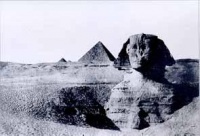Being
From The Art and Popular Culture Encyclopedia
| "I think, therefore I am" --René Descartes |

|
Related e |
|
Featured: |
Being is an extremely broad concept encompassing objective and subjective features of reality and existence. Anything that partakes in being is also called a "being", though often this use is limited to entities that have subjectivity (as in the expression "human being"). So broad a notion has inevitably been elusive and controversial in the history of philosophy, beginning in western philosophy with attempts among the pre-Socratics to deploy it intelligibly.
As an example of efforts in recent times, Heidegger (who himself drew on ancient Greek sources) adopted German terms like Dasein to articulate the topic. Several modern approaches build on such continental European exemplars as Heidegger, and apply metaphysical results to the understanding of human psychology and the human condition generally (notably in the Existentialist tradition).
By contrast, in mainstream Analytical philosophy the topic is more confined to abstract investigation, in the work of such influential theorists as W. V. O. Quine, to name one of many. One most fundamental question that continues to exercise philosophers is put by William James in Some Problems of Philosophy (1911):
"How comes the world to be here at all instead of the nonentity which might be imagined in its place? ... from nothing to being there is no logical bridge."
Etymology
From bheu-
See also
- Atman
- Becoming (philosophy)
- Category of being
- Cogito ergo sum
- Entity
- Essence
- Existence
- Existentialism
- Human being
- Hypostasis
- Infosphere
- Noumenon
- Object (philosophy)
- Physical ontology
- Ontology
- Organism
- Ousia
- Phenomenon
- Substance theory
- Supreme being
- Fromm To Have Or To Be? 1976
- Hegel, Phenomenology of Spirit
- Heidegger, Being and Time
- Sartre, Essays in Existentialism and Being and Nothingness

